Chief Engineer in Merchant Navy Duties
A Chief Engineer in merchant navy is the senior most engineer officer in the engine department of a ship. They are overall in charge and responsible for the engine department of a ship. Being the seniormost officer of their department they need to possess leadership skills and mentor the rest of their junior officers and engine ratings to become better at their respective jobs. They are expected to work alongside their junior officers and engine ratings and provide guidance to them wherever required. In the following blog, we have written about the duties of a Chief Engineer in Merchant Navy.
Authority of Chief Engineer in Merchant Navy

Chief Engineer in merchant navy is the head of the engine department and has the authority to change job responsibilities or the work schedule of personnel to suit operational requirements and ensure adequate rest. Chief Engineer in consultation with the Master defines responsibilities for additional staff in the engine room. Chief Engineer may contact the office at any time for specific problems that affect the safety or vessel’s performance. Chief Engineer must inform the Master at the earliest under all circumstances.
Chief Engineer must keep Master fully informed of all matters concerning engine department that may affect.
- Safety
- Navigation
- Seaworthiness
- Cargo operations
- Efficient vessel operation
- Environment
Environmental Control
Chief Engineer is the designated Environmental Control Officer (ECO) on board and is responsible for :
- Implementing International and local regulations regarding environmental protection.
- Implementing Company’s Environmental Management System (EMS) policies onboard as laid down in the Environment Management Manual.
- Ensuring that ship staff is familiar with a spill contingency plan.
- Performing the role of oil spill coordinator, except on oil tankers.
- Maintaining the Oil Record Book (Part I – Machinery Space Operations)
- Maintaining records as per Company requirements for compliance with MARPOL Annex VI.
- Training all ship staff regarding vessel-specific aspects of international and local environmental regulations and the Company’s Environmental Management System (EMS).
- Reporting any abnormality with pollution prevention equipment to the Office through Master.
- Achieving vessel-specific objectives and targets assigned by the Company in consultation with the Master.
Safety Duties of Chief Engineer in Merchant Navy
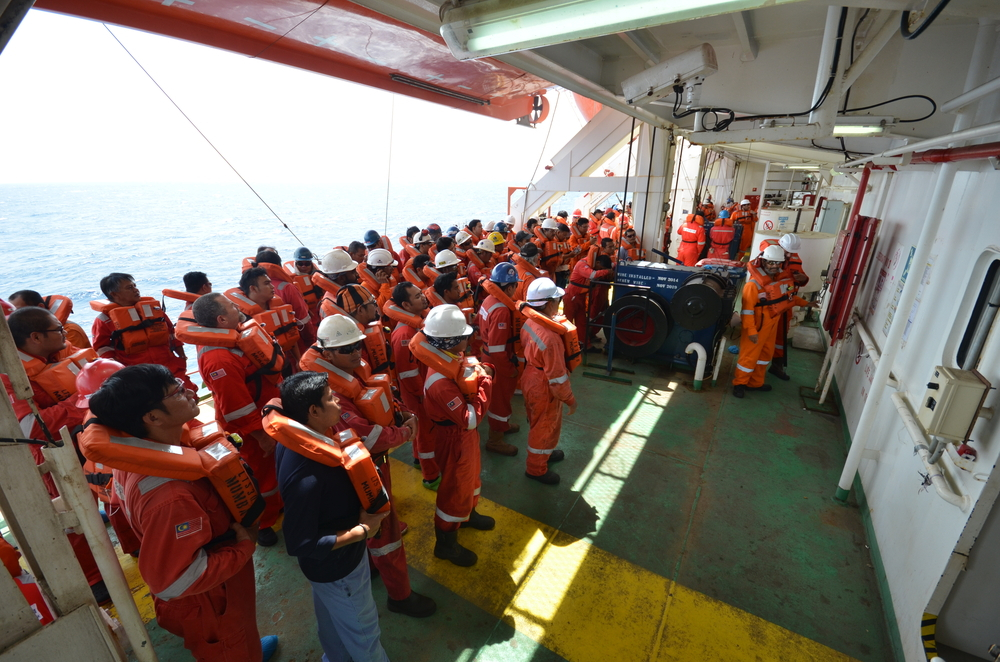
- Chief Engineers need to ensure that before departure to sea, the vessel has sufficient fuels, lubricating oils, engine stores, and machinery spares.
- Chief Engineers have to make sure that the machinery is in good working order for the intended voyage.
- They need to take care of safe machinery operations during arrival and departure port, navigating through congested waters, or in an emergency.
- Chief Engineers have to be present in the engine room during arrival and departure port or when navigating in congested waters, unless required elsewhere due to emergencies.
- For long maneuvering stations, the 2nd Engineer may relieve Chief Engineer as necessary.
- They have to ensure that statutory and class surveys are carried out in a timely manner.
Maintenance and Performance of Machinery
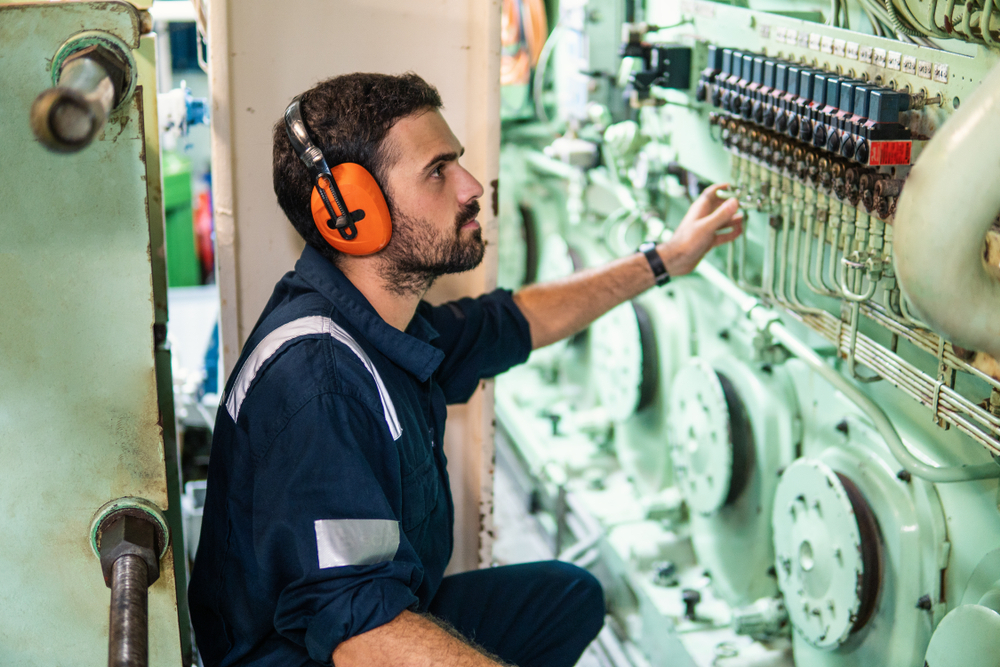
- Chief Engineers need to identify critical machinery and ensure its operational readiness.
- They have to ensure that the safety equipment in their charge is in good working order.
- They need to personally supervise the maintenance of critical machinery, cargo equipment, oily water separator, incinerator, emergency equipment, ballast water treatment system, air conditioning, and refrigeration plants.
- They have to ensure compliance with the machinery planned maintenance program and keeping records.
- They need to Advise the Master and Company about repairs requiring shore assistance.
- They have to ensure that vessel and its equipment are maintained in compliance with flag state and class regulations.
- Chief Engineers have to carry out Class approved Continuous Machine Surveys (CSM) as per the vessel’s PMS. Maintain records as per class requirements including photos, videos, test documents, etc., and confirm that it accurately represents the condition onboard. To facilitate remote class surveys, maintain and provide the records/document as required. In any case of damage/failure consult Office and inform the class immediately.
- They need to report technical defects causing non-compliance with any requirements or laws as non-conformity.
- Chief Engineers have to take care of achieving economy in the consumption of fuel, lubricating oils, spares, and stores.
- They need to continuously monitor and evaluate machinery performance and ensure optimum performance.
- They need to provide technical support to Chief Officer for performing cargo operations.
Chief Engineer in Merchant Navy’s Standing and Night Orders
Chief Engineers have to prepare the standing orders as per the Company provided guidelines and discuss it with all the Engine Watchkeeping Officers, including new joiners, giving them the confidence to call whenever in doubt.
They need to issue night orders as and when they are required to supplement the standing orders during the periods of manned engine room. For periods of Unmanned Machinery Space (UMS), night orders will generally not be required.
Personnel Management and Training
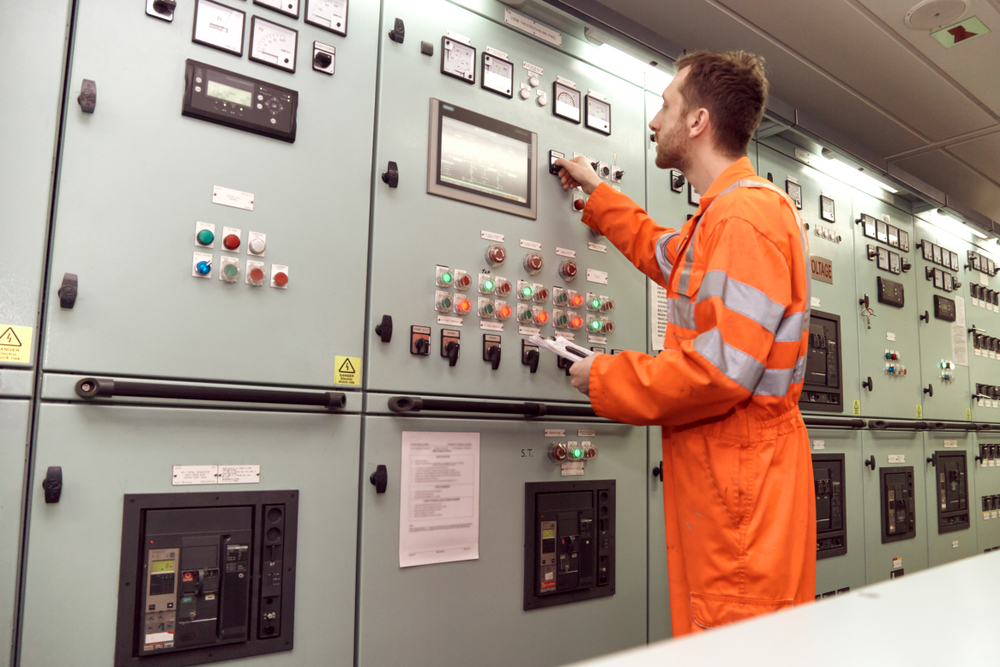
- Chief Engineers need to ensure that the engine room staff clearly understands:
- Company’s SMS manuals, procedures, and circulars.
- Manufacturers’ operating and maintenance instructions.
- Chief Engineers have to encourage and guide the engine staff to use the planned maintenance program relevant to their responsibilities.
- Chief Engineers need to carry out job familiarization and training of all engine staff including trainee and junior engineers.
- They have to prepare appraisal reports for engine room staff.
- Chief Engineers have to take care of Discipline, efficiency, and welfare of engine room staff. ‘
Bunkers
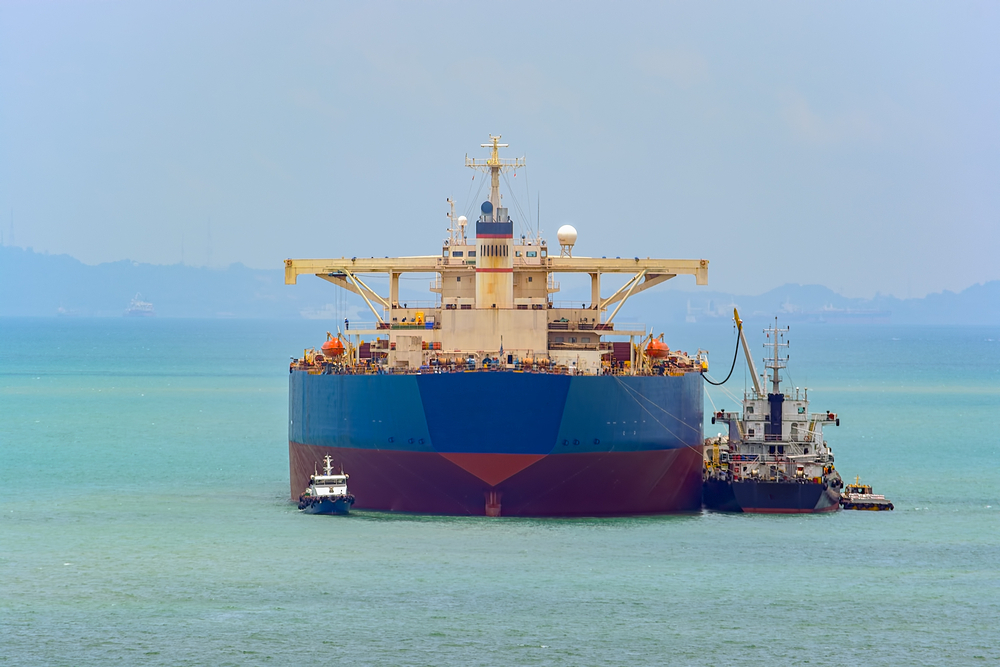
Chief Engineers have to plan and supervise bunkering operations as per Company procedures.
Advising Master of:
- Daily bunker consumption and remaining onboard quantity.
- Daily fresh water generated quantity.
- Bunker requirement for the voyage, taking into account all operating variables and charter party terms.
Recordkeeping
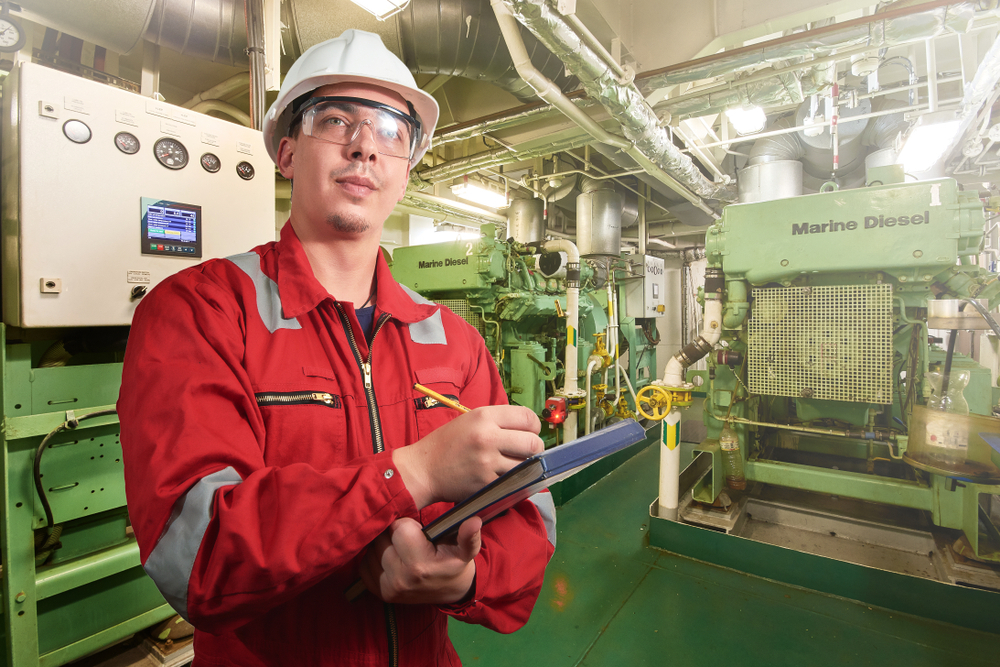
Chief Engineers are responsible for the upkeep of manuals, drawings, logbooks, inventories, defect lists, and correspondence of the engine department. They have to ensure timely reporting of machinery performance and maintenance records, survey status, machinery spares and store’s inventory, requisition, etc. as per Company requirements. They have to carry out monthly checks of engine department logs and records using a vessel-specific checklist.
Key Performance Duties
In addition to the duties mentioned above, Chief Engineers have to take care of the following points:
- No overdue statutory or class survey
- No blackouts
- No unplanned stoppages of vessel
- No breakdown of critical machinery/equipment
- No breakdown of cargo handling equipment
- No overdue condition of class
- No detention in Port State Control (PSC) inspection.
- No failure in vetting/charterer’s inspection.
- No observation in flag state inspection
- No overdue maintenance/testing of critical machinery/equipment in the Planned Maintenance System (PMS).
- No critical machinery/equipment is inoperative onboard.
- No critical safeties are inoperative or bypassed for any machinery/equipment onboard.
- No NC in ISM/ISPS/MLC external audit.
- No inter-departmental conflict
- No speed/consumption dispute
- No bunker figure dispute during off-hire/on-hire surveys
- No spares to be below minimum and critical spares requirement for all machinery onboard.
Disclaimer :- The opinions expressed in this article belong solely to the author and may not necessarily reflect those of Merchant Navy Decoded. We cannot guarantee the accuracy of the information provided and disclaim any responsibility for it. Data and visuals used are sourced from publicly available information and may not be authenticated by any regulatory body. Reviews and comments appearing on our blogs represent the opinions of individuals and do not necessarily reflect the views of Merchant Navy Decoded. We are not responsible for any loss or damage resulting from reliance on these reviews or comments.
Reproduction, copying, sharing, or use of the article or images in any form is strictly prohibited without prior permission from both the author and Merchant Navy Decoded.


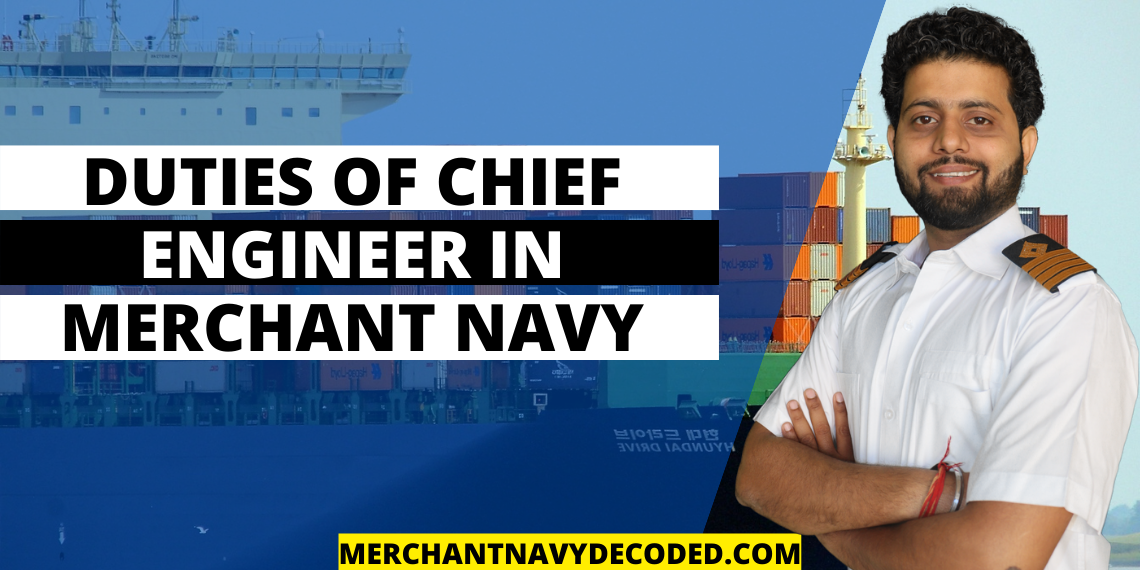
[…] Duties of Chief engineer […]
[…] Duties of Chief Engineer […]